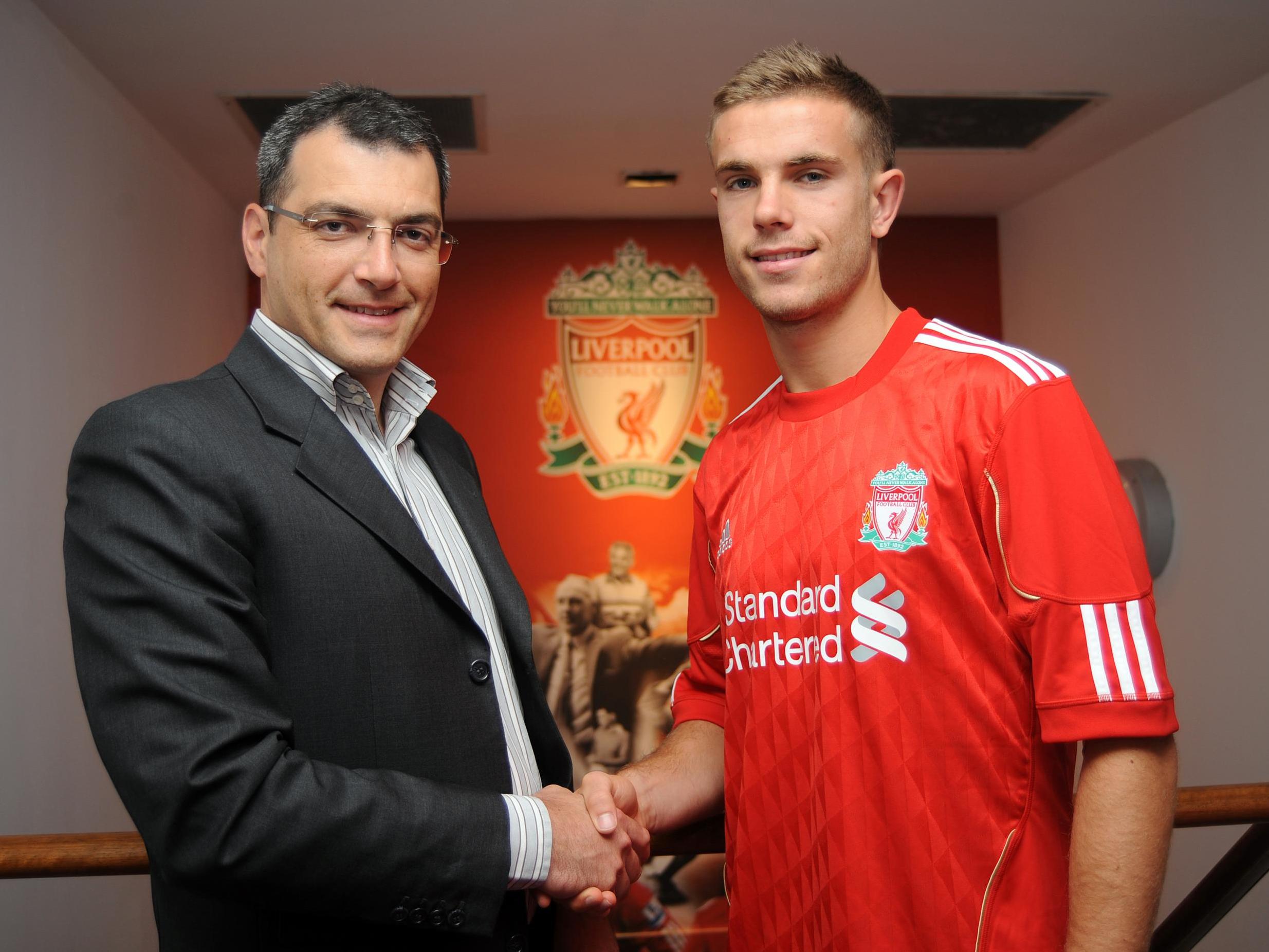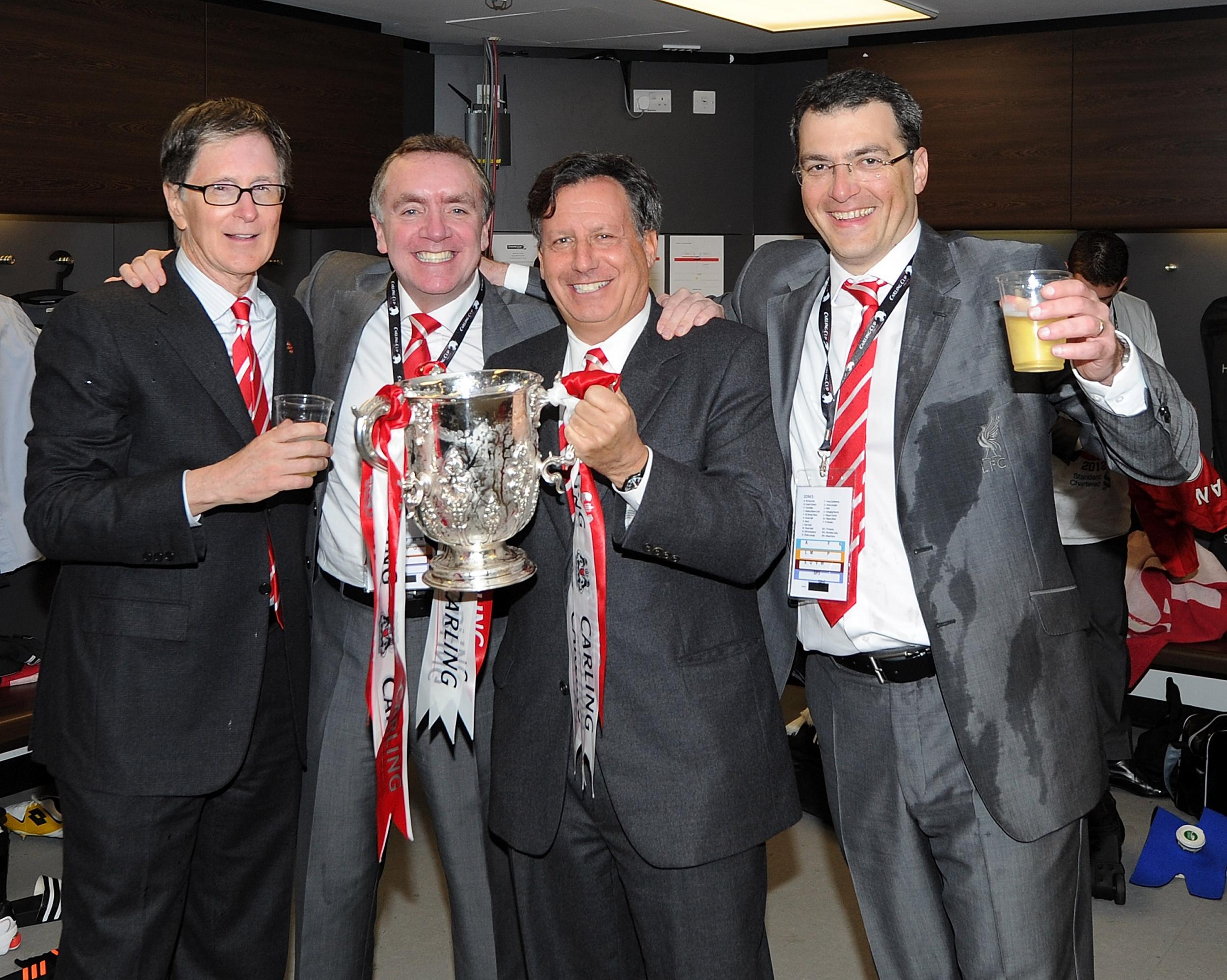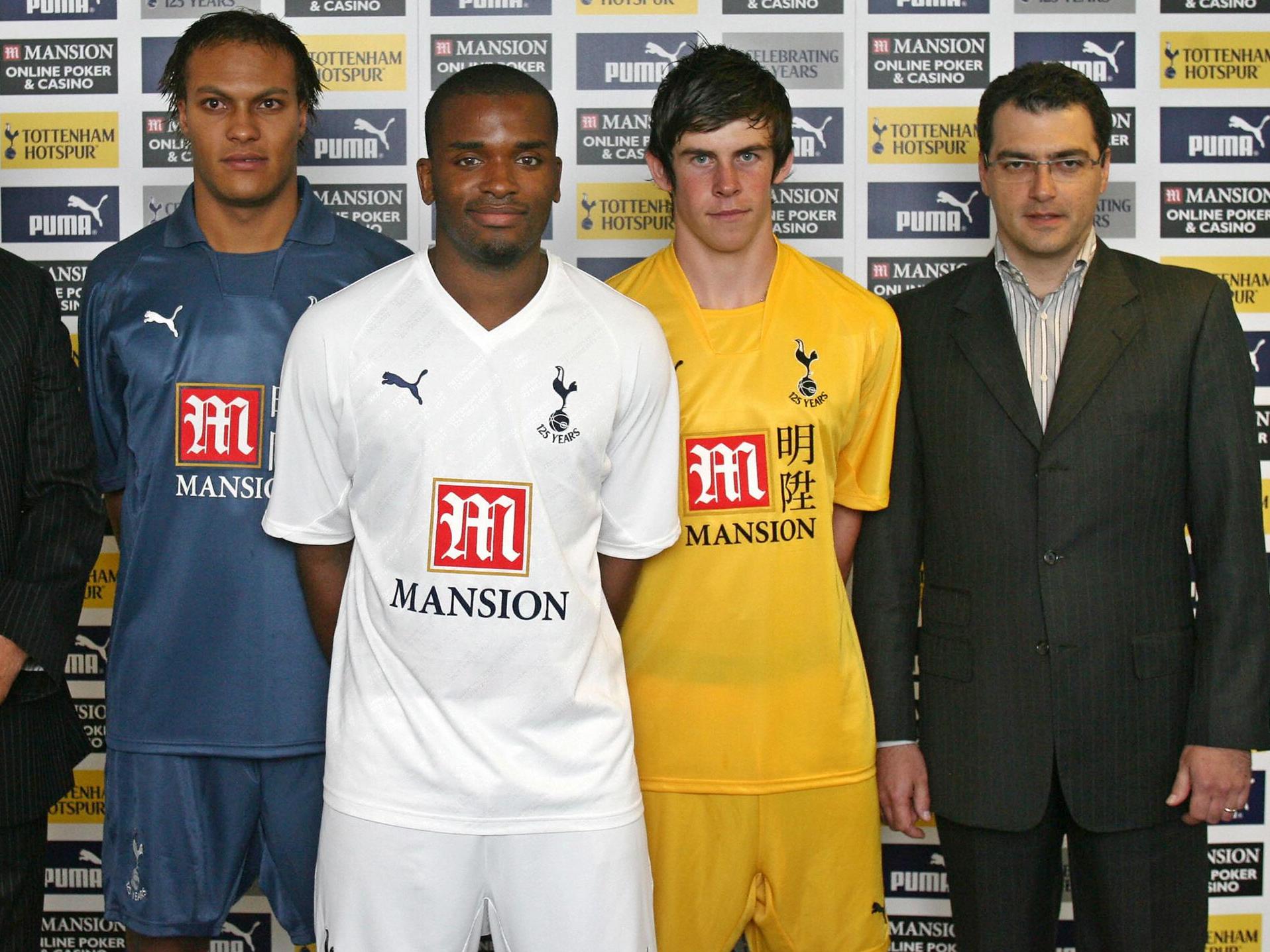How Liverpool and Tottenham became two of Europe's best-run clubs from the man whose values shaped both
Exclusive interview: Damien Comolli explains how with astute owners, intelligent decision-makers and charismatic, modern managers the Champions League finalists have made themselves model clubs at the very top of the game
It is more than seven years since Damien Comolli was sacked by Liverpool, and almost 11 since he left Tottenham. But when those two well-run clubs in the Champions League final in Madrid this Saturday, some of his residual influence will still be felt.
There in the players he signed: Danny Rose for Tottenham and Jordan Henderson for Liverpool. There in the deals he lined up, like Hugo Lloris, who eventually joined Spurs after Comolli left.
But there most of all in the presence of Comolli acolytes and appointees in key decision making roles at each club. Steve Hitchen, Spurs’ chief scout, was taken from Spurs to Liverpool by Comolli as soon as he joined in 2010. Mike Edwards and Ian Graham, Liverpool’s sporting director and head of research, were both recruited by Comolli, who saw them as two of the best young data analysts in the game.
Comolli insists now that he cannot take responsibility or credit for what has happened since he left these clubs. Asked whether he feels “pride” in their recent achievements, he chooses a different word. “I enjoy seeing all the progress that they made throughout the years,” he tells The Independent. But Comolli has clearly won the argument. He guided Liverpool towards ‘Moneyball’ principles, and Edwards and Graham have taken them to levels no-one else expected.
No-one could dispute now that Liverpool are one of the cleverest clubs in the country. For years their transfer policy was laughed at as nerdy and unrealistic but the last two seasons have been a thumping vindication of it. Two consecutive Champions League finals and a 97-point Premier League season, the third best in history, built on Jurgen Klopp's brilliance, and on the back of astute data-driven buys: Sadio Mane, Mohamed Salah, Virgil van Dijk and Allison.
You can trace the roots of all this back to the start of the decade, when Comolli was appointed director of football in November 2010, and set about revamping how the club did business. He was John Henry’s first major appointment at the club - before Kenny Dalglish replaced Roy Hodgson - and he was tasked with bringing the club’s analysis and recruitment policies into the 21st century.
Comolli appointed Steve Hitchen - now Spurs’ chief scout - as Liverpool’s new head of recruitment. Hitchen was the first man to know that Ajax would put Luis Suarez up for sale in the January 2011 transfer window for just £22m, having followed the player ever since he was at Groningen. “That is why we were able to jump on him before anybody else,” Comolli says. “That is the type of work that [Steve] does. And Suarez was so incredibly successful that he put Liverpool back on the map, he was really like the spark that started the whole thing.”
There were some failures in that first few years of transfer activity under Comolli - Andy Carroll, Charlie Adam, Stewart Downing - but the buy that cost Comolli his job was the one that worked out the best. There was some surprise when Liverpool paid £20million for 20-year-old Jordan Henderson. But Comolli always knew he would be a top player.
“It was a mix of four different factors. The first one: when we looked at his fitness data it was absolutely out of this world. That was very important, to know that he could match the intensity that physically Liverpool should play at. Secondly, when we looked at his technical and tactical data, he was doing things at Sunderland that were as good as some of the top midfielders in the Premier League. The third aspect was live scouting, we all watched him, all came back very enthusiastic about what we saw. And the fourth aspect is the personality. We made a lot of enquiries about what type of individual he was, his behaviour, his obsession for improvement. They talk about marginal gains, with Jordan every day it is ‘how can I improve, how can I gain 5% of marginal gains?’ The other aspect of his personality, when you spend a bit of time with him, you can straightaway tell about his leadership skills, his determination, his commitment. Everything you see on the pitch.”
Henderson was not an instant success at Liverpool and when Comolli was fired in April 2012, he was told that signing was the reason why. “I remember the day I was sacked, the owners told me, Jordan Henderson what a massive mistake it was,” Comolli recalls. “That was about the only thing they told me.”

But seven years on Henderson is about to captain Liverpool into a second straight European Cup final. If there is still any lingering debate about his value as a player, there should not be. “I am obviously very pleased because Jordan played a key part to what is happening at Liverpoool,” Comolli says. “The second leg of the semi-final [against Barcelona] is just… typical Jordan Henderson. The energy he brought to the team, the determination, the commitment, refusing to give up, refusing to lose. So when you put everything together, we were convinced.”
Comolli’s true Liverpool legacy could be in two other signings, far away from the pitch. Comolli “wanted to take Liverpool to another level in terms of analytics,” in line with how Fenway wanted to run the club. So he revamped the club's approach. “I made a few enquiries around the Premier League and people who worked around the Premier League, data providers, that kind of company. I just said ‘tell me who is the best in the Premier League and I want to go and get him.’ The name that was coming back was Michael Edwards, Michael Edwards. and I got in touch with him and got him.”
Edwards left his job as Spurs’ head of performance analysis - a job Harry Redknapp had got him after Comolli left - to do the same job at Liverpool. Five years later he was made sporting director. “He is just someone who...you are struck with how intelligent he is. That type of guy. I like the fact that he challenges the conventional wisdom, like Billy Beane. Because he’s got an analytical hat on. ‘Why should we do that? Because it’s been done the same for the last 60 years? But what if it’s wrong? Why should we look at it in that way, when the data tells us that we should look at it the other way?’ And that’s exactly why I appointed him at the time.”

Ian Graham earned a PhD in theoretical physics from Cambridge University before becoming head of football research at a firm called Decision Technology, analysing data to judge footballers. That is where Comolli met him when he was still at Spurs. “I met Ian when he was working for Decision Technology,” Comolli says. “I appointed them as our data providers, data analysts at Spurs. So I go back a long time with all those people.” Graham advised Comolli and Spurs on signings.
Graham’s analysis pointed Comolli towards a signing he could not quite make, but who did become a Tottenham legend and is still at the club. “They are the ones, Ian Graham and Decision Technology, who identified Hugo Lloris when he was 21 [and playing for Nice]. We knew Hugo from a scouting perspective, but the data showed us how good he was at 21, and how good he could become with being more mature.” They looked at far more than just Lloris’ save percentage as a youngster at Nice. “Just looking at save percentage can be misleading, and can be inconsistent from one season to another. It is the quality of the shot that has been taken, where the save was made.” Lloris ended up moving to Lyon, but four years later Daniel Levy got his man.
So Graham joined Liverpool too, and Comolli had started to put together a team that would change how football clubs use data, long after his departure. When Comolli was fired in 2012 one report crowed ‘RIP Moneyball’ but in fact those values emerged stronger than ever. “We took there two of the most advanced individuals in terms of analytics in the Premier League, if not the world of football, in Ian Graham and Michael Edwards,” Comolli says. “I knew they were incredibly smart, and they could take any clubs to the next level. Ian and Decision Technology helped Spurs get there and they are obviously doing it at Liverpool as well."

‘Moneyball’ is often misunderstood: it does not just mean analysing players statistically, but assessing which players are undervalued in the market, and how a team can make most efficient use of its resources. Part of the story of Liverpool in the last few years - as well as the unique brilliance of Klopp - has been the vindication of this approach. Mane, Salah, Robertson, Van Dijk and Allison have all been inspired buys, all of them driven by Graham and Edwards realising that the players were undervalued.
“It is not so much [about] helping to identify those players. The whole world knows those players. What data has helped them to do, and all the analysis, it shows that if you spend that much money for a player, actually you will get more than your money back. Because it will take you to a different level.”
“That is where they use the data. Let’s say Salah was worth £100m, but they paid £40m. They knew, looking at the data, that the player was both undervalued by the selling club, and by the market in general. They knew exactly what they were doing.”
Last year Liverpool spent £75m on Van Dijk and £67m on Alisson but no-one could question how much those two have improved the team, more than justifying the money spent on them. “When they go and spend on Van Dijk and Allison - I haven’t spoken to them, but from the outside looking in - they say what is our budget, can we afford those players, and that those players will help us gain two, three, four, five points in the Premier League, or help us to win the Champions League. That’s the way they look at it. When people say they’ve overspent, I’ve never agreed with that. I know how they work, they will look at return on investment, next to data.”

So is this the eventual success of ‘Moneyball’ principles? “Yes, absolutely. You establish which players are undervalued in the market. You establish what the player will bring back to you as a return on investment. So if they pay £142m for Van Dijk and Allison, people will say they’ve overpaid, but what about if they win the Champions League final? Nobody will say they’ve overpaid. And that is the Moneyball principle.”
Comolli’s time at Tottenham was further in the past but he still has happy memories of his time at White Hart Lane. Comolli was just 33 when Levy appointed him as sporting director in 2005, desperate to get Spurs into the top four. Comolli looked at the stats and saw that Tottenham were behind the top four on possession in the opposition half and passing rate into the opponent’s final third, more than anything else. So he set about finding players like Dimitar Berbatov, Gareth Bale and Luka Modric to make that gap up.
Again, Comolli insists that he “certainly would not want to take any credit for anything that has been done recently”. It is very clear how much admiration he has for Levy from that three years they worked together. When Comolli identified Modric, then at Dinamo Zagreb, as a player Spurs had to sign, he was impressed when Levy closed the deal by flying on a private jet to Zagreb to close the deal with Zdravko Mamic. From under the noses of Barcelona. Levy called Comolli at 3am to tell him the deal was done.
“Daniel is one of the most intelligent people I ever came across in my life,” Comolli says. “Hard-working, visionary. And I think it’s a perfect match with Mauricio. Because I think what Daniel and Mauricio have done there is incredible. Each of them in their own field are two geniuses. One on the pitch, the other one off the pitch. This combination of working together, creating an incredible, fantastic team, taking this football club into a new dimension. It was difficult to imagine a few years ago.”
No other club in the game has improved as much in recent years through its own hard work, rather than from an external benefactor. “What [Daniel and Mauricio] have achieved, I don’t think they get enough credit. I can’t think of any football club in Europe from the last 15 years that has made so much progress on and off the pitch: commercial, sponsorship revenues, quality of the squad, style of football played, the best stadium in the world, the best training ground in the world of football, getting to the Champions League final, every year competing in the Premier League, having the lowest wage bill of the top six. I don’t think they get enough credit for what they are doing, Daniel and Mauricio, and the people working with them. I think people should say what you are doing is incredible. There is no other example I can remember of doing what Daniel has done, for the last 15 years.”
Ultimately that is what this final represents: a meeting of two of the best-run clubs in Europe. Two teams who have made the most of the resources. With astute owners, intelligent decision-makers and charismatic, modern managers. Other teams, who just throw money at their problems, could take note.
“It tells you a lot about the quality of the management of both clubs. They are very clever, very intelligent people, bright people, running the two clubs. If you have intelligent people who want to work together, who have a common culture and common values within the club, your chances of success are quite high. If you are Bayern Munich, Real Madrid, Manchester United or Juventus, you’ve got all the money in the world and you think money buys success. Spurs and Liverpool have got a slightly different approach. They’ve got less money than the others, so they’ve got to think differently. That’s why culture, values, having the right people in the right places, that plays a massive role."
Join our commenting forum
Join thought-provoking conversations, follow other Independent readers and see their replies
Comments
Bookmark popover
Removed from bookmarks